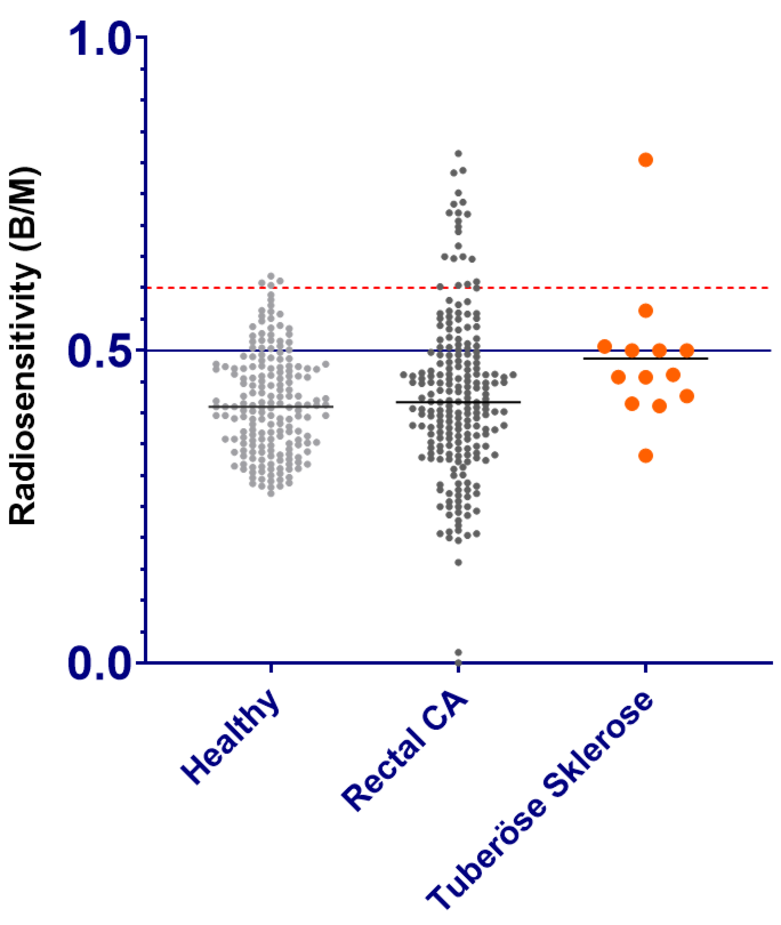Tuberous sclerosis
- Tuberous sclerosis or tuberous sclerosis complex (TSC) is an autosomal-dominantly inherited multisystem disease caused by loss-of-function mutations in the TSC1 or TSC2 gene. These genes code for a protein complex that plays an important role in the regulation of cell growth, atophagy, protein and lipid synthesis. Typically, these patients often develop (benign) tumours of the brain, kidneys, lungs and heart; patients may have epilepsy, be cognitively impaired and/or suffer from an autism spectrum disorder. Radiobiological Characterization of Tuberous Sclerosis: a Delay in the Nucleo-Shuttling of ATM May Be Responsible for RadiosensitivityTuberous sclerosis complex
Literature on radiosensitivity measurements:
- Fibroblast cultures from patients with TS often showed hypersensitivity to gamma radiation and radioactive substances in experiments described in the literature. In these studies, some cell cultures did not show hypersensitivity to ionising radiation. Variable Radiosensitivity in Fibroblasts from Patients with Tuberous Sclerosis
- No more single-strand breaks caused by ionising radiation were found in fibroblasts from patients with TS than in normal fibroblast cultures. Rapid rejoining of X-ray-induced DNA single-strand breaks in tuberous sclerosis fibroblasts.
Literature on clinical case reports/consequences of radiation:
- A TS patient developed severe acute side effects, such as severe mucositis in the irradiated area, while undergoing radiotherapy for a lymph node tumour. Hypersensibilité à la radiothérapie chez un patient atteint de la sclérose tubéreuse de Bourneville : réflexions biologiques à partir d’un cas clinique

